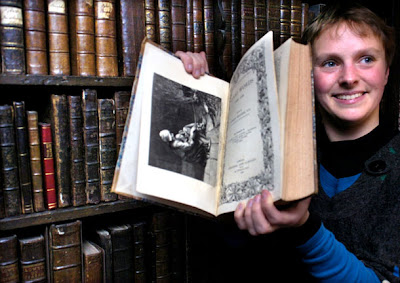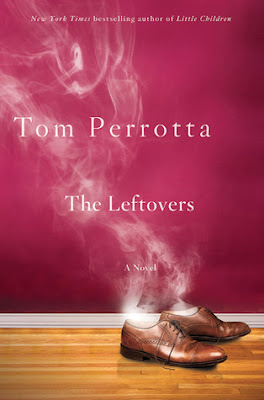 |
| From: The Daily Mirror (Katrina Zanhak holding Good Words for 1888) |
"The National Trust is always turning up odd things in its many properties whose contents defy rapid archiving. Last time I was at Nunnington Hall – one of the pleasantest days out in Yorkshire – they had a display of family bits and bobs found under the floorboards of just one small room.
They had slipped through cracks or possibly been stuffed there by children; small toys, buttons and the like. Nothing dramatic but a curious addition to the fascination of such ancient places.
Now the staff at Townend House in Troutbeck have made a good discovery: a library book which is overdue for return by 123 years. A check on the fireside shelves in the lovely old Lake District farmhouse has turned up a copy of Good Words for 1888 which was borrowed in that same year. [...]
'George Browne, who lived at the house with his wife and three daughters at the time, was an extremely keen reader. I would not expect them to forget to take something back but if it was him, he has been very naughty,' [says Katrina Zanhak, the trust's custodian at Townend]
He might have been distracted by other naughty things, mind. Two years ago, the trust discovered a stash of saucy 'chapbook' pamphlets, gently erotic stories sold by travelling pedlars, tucked behind more respectable tomes on another shelf. Doggerel accounts of seductions, they included such lines (from one called The Crafty Chambermaid's Garland) as:
He stript of his clothes and leaped into bed
Saying: Now, lovely creature, for thy maidenhead. [...]
[Katrina] Zanhak wonders if the overdue loan is the longest ever, but sadly this is not the case. In April 2010, the New York Society library did an audit of its records and found that a book on the Law of Nations and a volume of House of Commons debate had been taken out on 5 October 1789 and never returned.
The borrower was George Washington who famously never told a lie but clearly had other faults. He theoretically owes the library, the oldest in New York, over $300,000 (£195,000) in fines. Worse, the books have disappeared."
— Guardian
Read more...
To see a related post ("Bad Bard") go here...

































